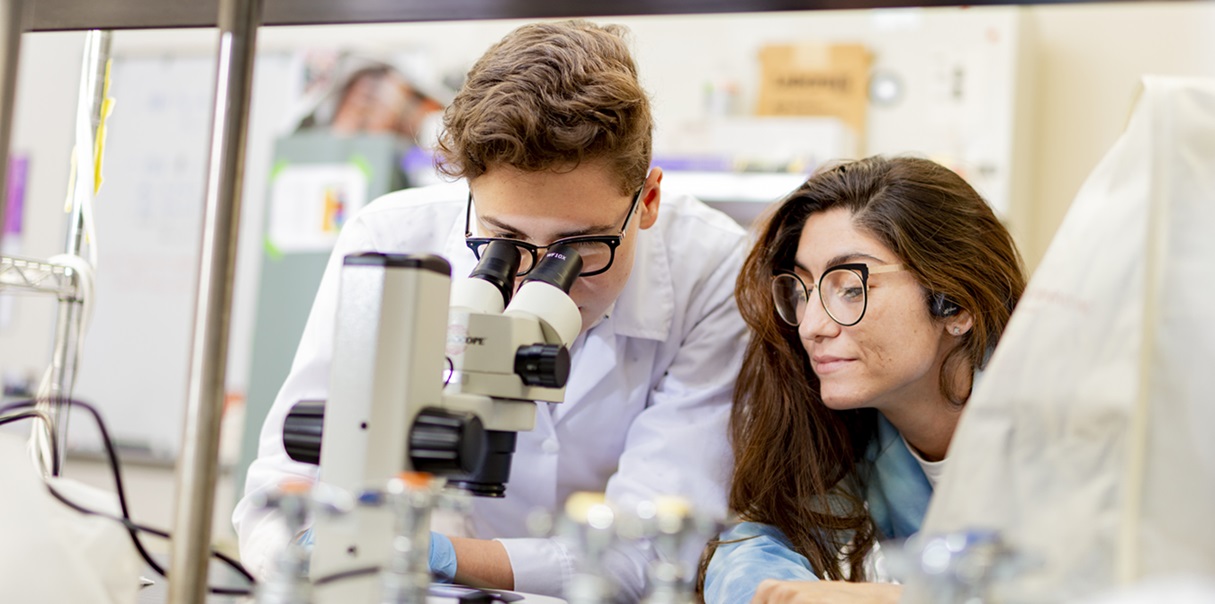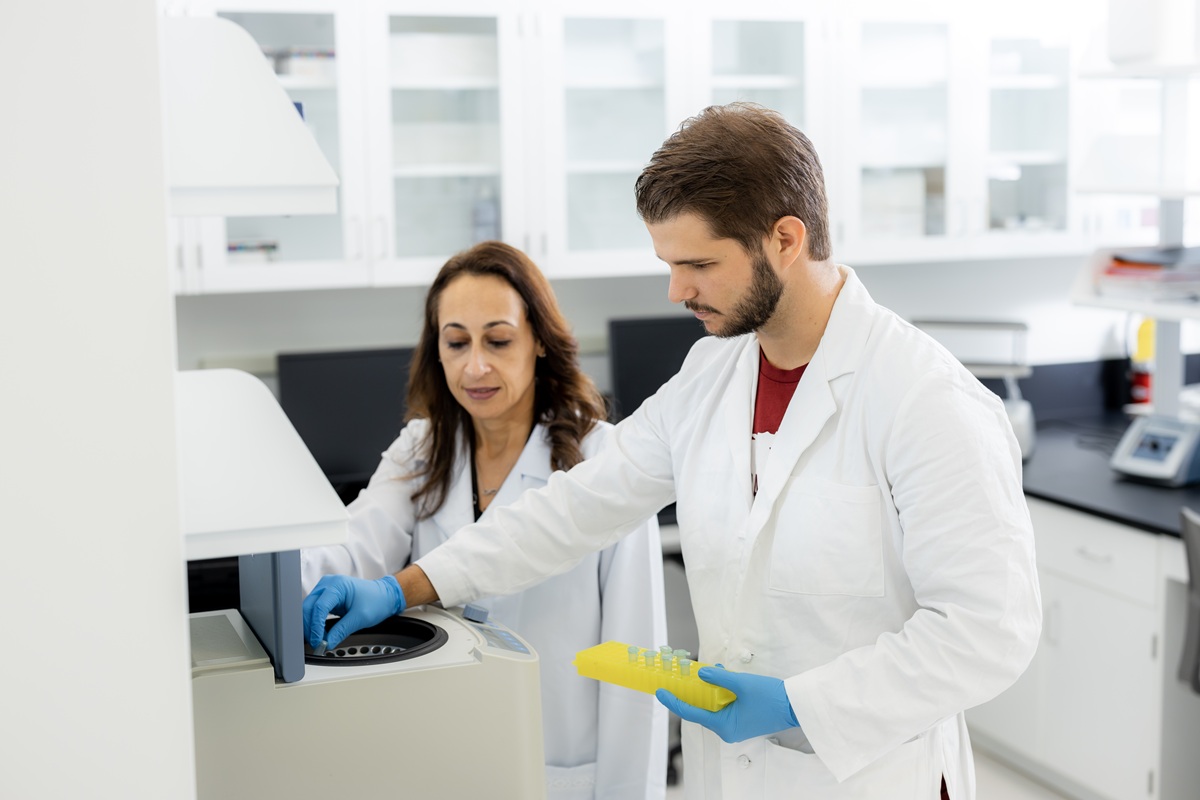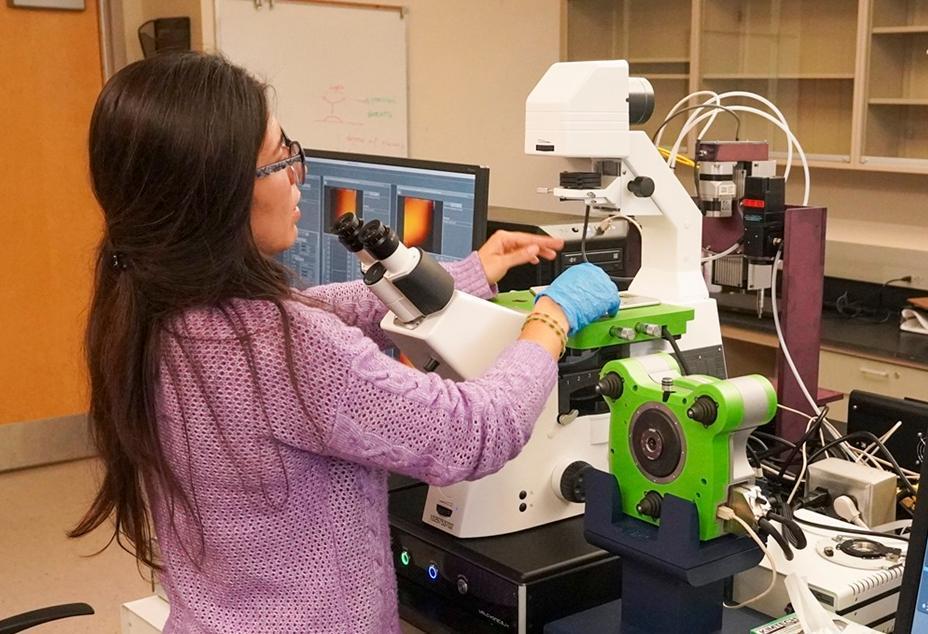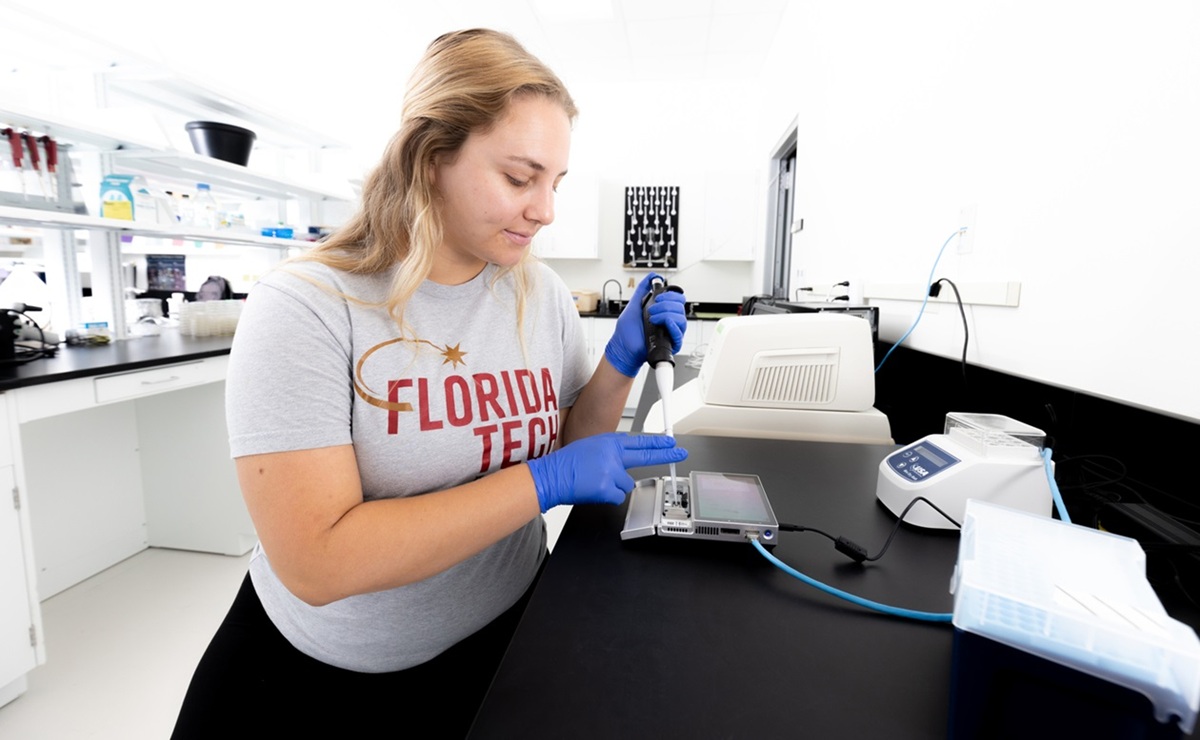In the M.S. in cell and molecular biology, students delve into the molecular mechanisms that drive life, advancing our understanding of health and disease.
Through coursework, hands-on research and cutting-edge techniques, students stay at the forefront of scientific discovery, preparing to contribute to breakthroughs in medicine, biotechnology and related fields.
At the core of this dynamic program is our distinguished faculty.
Faculty conduct research across a wide range of topics, including microbial genetics, protein biochemistry, neurodegeneration, vascular biology and plant molecular interactions. Their work advances understanding of chromosome replication, proteasome regulation, amyloid fiber formation and molecular pathways in disease and plant-biotic interactions, driving innovations in medicine and sustainable agriculture.
Guided by our experienced faculty, students gain the knowledge, mentorship and research opportunities needed to excel in cell and molecular biology.

 Give to Florida Tech
Give to Florida Tech 



